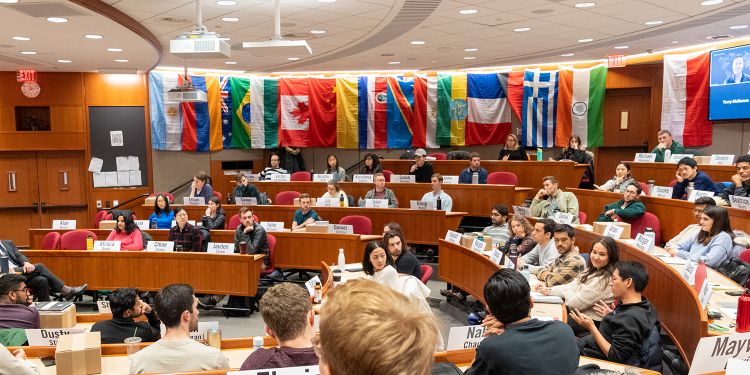This fall, Professor Jim Matheson offered the inaugural "Launching Climate Ventures" Sprint, a one-day program that provided students with an understanding of the process of launching a climate-focused technology venture. This was a combined effort with Paul Hayre and the team at the The Harvard GRID, who co-offered it as a Bootcamp for MS students at School of Engineering and Applied Sciences (SEAS). The demand and interest across Harvard University was clear, with over 150 students who signed up, including HBS MBA students, engineers, and scientists.
The goal of the program was to help climate concerned student entrepreneurs learn about the steps of launching a climate venture, including identifying climate problems, licensing intellectual property, building a founding team, and raising early financing. The program was designed for anyone interested in founding, joining, or investing in early-stage ClimateTech companies.
To start off the day, Professor Jim Matheson provided critical background knowledge on the context of climate change, exploring both the key problems and opportunities that climate change presents. From there, the day unfolded with a series of panels featuring subject matter experts, including entrepreneurs, CEOs, founders, University lab leaders, tech transfer officers, and venture capitalists.
Students explored sources of climate innovation with Emily Stoler, Executive Director of the Wyss Institute, Sukanya Punthambaker, co-Founder & CEO of Breaking, and Adam Slavney co-Founder & CEO of Pascal. They heard from Sam Liss and Harvard Office of Technology Development on translating and licensing intellectual property. Ted Wiley, co-Founder and COO at Form Energy, spoke about the journey to making a climate impact and Tom Clay, CEO Xtalic Corporation and HBS Executive Fellow, explored how to build a successful founding team. Rounding out the afternoon, Ann DeWitt and Richard Collins of Engine Ventures outlined how to raise early climate tech capital. The day ended with plenty of time for networking with local climate tech leaders and investors.
The Sprint was made possible by a partnership with climate-focused organizations across Harvard University including The Harvard GRID, The Salata Institute, and HBS’s Business and Environment Initiative. Through this collaboration, participants were able to gain a holistic view of the entrepreneurial journey and a unique opportunity to collaborate with climate concerned students across the business, technology, policy and law domains.

